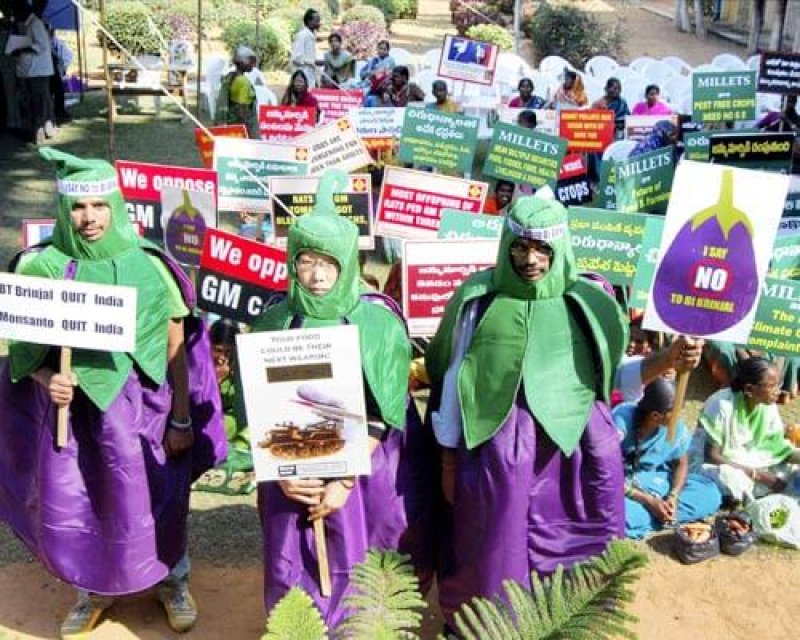Media reports are claiming that Bt brinjal (eggplant) has failed in the field and that farmers in Bangladesh are regretting growing it. The stakes are high: this is South Asia’s first GMO food crop, developed in the public sector for distribution to resource-poor farmers. The anti-GMO lobby knows that if farmers successfully adopt this new crop, their cause of banning the technology permanently will be harmed.
The rationale for the new variety is very simple – it is resistant to the endemic pest called fruit and shoot borer by carrying the Bt gene, and therefore requires drastically less pesticide.
The latest media report, online here, claims farmer Mansur Sarkar is furious at the non-performance of his Bt brinjal crop. The article also alleges that Sarkar and another are demanding compensation for being “guinea pigs” and for loss of livelihood. International media and Twitter are already interested in this story.
However, it is entirely false. I myself, along with others from Cornell University and the Bangladesh Agricultural Research Institute (BARI), visited the same farm a day earlier and found the crop in good health and the farmer happy. I have the photos to prove it.
In addition to false reporting, anti-GMO activists are now spreading scare stories about Bt brinjal directly to farmers and consumers. Several of the farmers I visited in Rangpur had been visited by an anti-GMO activist posing as a journalist who told them that if their children ate Bt brinjal they would become paralysed.
If people reject Bt brinjal, then Bangladeshis will continue to consume brinjal laced with dangerous pesticides. This is why the Agriculture Minister recently asked whether the anti-GMO activists were receiving money from insecticide manufacturers.
The GLP aggregated and excerpted this blog/article to reflect the diversity of news, opinion and analysis. Read full, original post: Bt brinjal in Bangladesh – the true story































